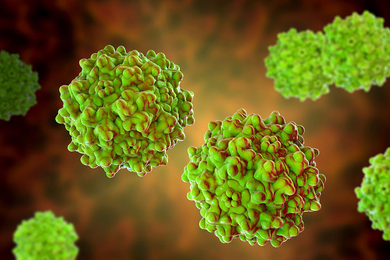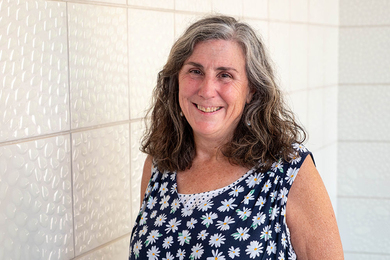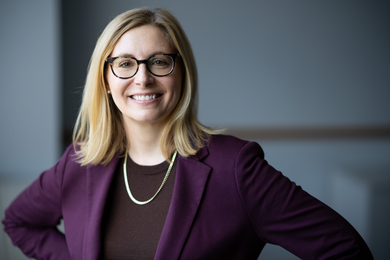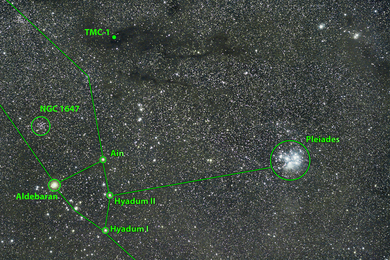When LaCreis Kidd marches up to receive her PhD in toxicology on Friday, no one will be prouder than her 70-year-old maternal grandmother, Paula Staton.
"At each stage of my academic life, she's been there to help celebrate the accomplishment and encourage me to go further," said Ms. Kidd, who dedicated her thesis to both grandmothers, Ms. Staton and Birdie Jenkins, and her late grandfather, Romulus E. Staton.
Four generations of her family will attend Commencement. In addition to her grandmothers, Ms. Kidd's nine-month-old daughter, Nayla Christene Kidd-Eweka, and her mother, Sylvia Staton Diaz, will be in the audience. Ms. Diaz is the dean of Sousa Junior High School in the Bronx and an "active participant in the academic and cultural growth of our children," according to her daughter.
Alluding to Ms. Staton, Ms. Kidd said, "My grandmother raised five children alone in Harlem in the '50s, and she instilled self-discipline, organizational skills and a thirst for knowledge in all of them. All her children obtained college degrees. These traits were passed on to the next generation." The Statons were divorced when their youngest child was 2.
Ms. Kidd, 28, intended to go to medical school when she entered Spelman College, an historically black women's college in Atlanta. By the end of her sophomore year, she had decided to concentrate on research and she participated in the UMARC (Undergraduate Minority Access to Research Careers) program. She was recruited for MIT by Professor William G. Thilly and attended the MIT Summer Research Program in 1990.
"At Spelman, the number of students in the classes were relatively small and the small classrooms enabled the instructors to really get to know the students," said Ms. Kidd, who took some undergraduate classes with as many as 200 students when she entered MIT. "That makes it hard to establish relationships with the instructors."
She did develop a close relationship with her advisor, Professor Steven R. Tannenbaum, director of the Division of Toxicology. "When she came here, she was a little intimidated by the place," he recalled. "A lot of kids are. She really tested herself here and she found she could meet the challenge. I would describe her as a quiet doer."
Ms. Kidd's thesis explored the potential connection between colorectal cancer and heterocyclic amines produced by cooking muscle-containing foods (beef, pork, fish) at high temperatures.
While the research was unable to prove there is a link, Professor Tannenbaum said, "she developed very sophisticated analytic methods and did an heroic amount of work." Ms. Kidd, who plans to do postdoctoral research in epidemiology, hopes to publish the thesis.
Ms. Kidd, the first African-American woman to receive the PhD from the Division of Toxicology, has had a longtime interest in nutrition. She was a strict vegetarian when she came to MIT and would post exotic recipes on the laboratory bulletin board. "When I find something I like, I want to share it," said Ms. Kidd, who has conducted a seminar series on better health through nutrition and physical fitness.
Her interest in cancer research was spurred by the toll that the disease has taken on her family. Relatives have been afflicted with breast cancer and prostate cancer, and her grandfather died last January of lung cancer. "For months before my grandfather passed, he kept asking me how much longer I had to go," she said. "It was almost as if he were trying to wait around until I was finished. If he were here today, I know he would be proud."
In addition to performing experiments and writing her thesis, Ms. Kidd took care of her baby. She was supported and encouraged by Professor Tannenbaum and staff members, who set up a nursery in the laboratory. She also received special support from Associate Dean Margaret Daniels Tyler of the Graduate Education Office, Special Assistant to the President Mary P. Rowe, Kathy L. Simons of the Family Resource Center, Assistant Dean Ayida S. Mthembu of the Counseling and Support Services Office, co-workers, friends and family.
Ms. Kidd is the second alumna of the Summer Resource Program to receive a doctorate, following in the footsteps of Dr. Gillian Reynolds, who earned the PhD in physics. The program is designed to introduce talented college sophomores and juniors from underrep-resented American minority groups to a research environment under the tutelage of MIT faculty. Twenty-three MSRP alumni/ae have matriculated at MIT.
Ms. Kidd will deliver the keynote address at the Summer Research Program's banquet on August 15. Her words of encouragement to aspiring students: "If I was able to complete my doctorate with my thesis in one hand and a baby in the other, then you can accomplish your academic goals, too."
A version of this article appeared in MIT Tech Talk on June 4, 1997.





